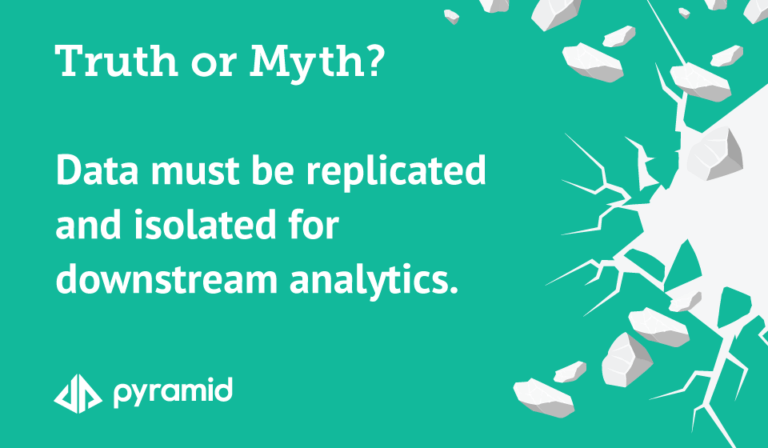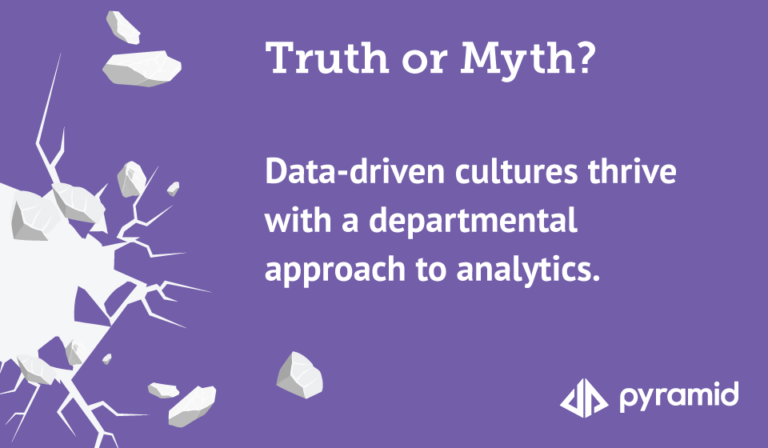Your data is only as good as what you do with it.
That might sound obvious, and yet some business owners are still using outdated business intelligence tools and methods to analyze their data.
BI is like anything else. If you want to be in control of your data – and your business – you’ve got to know what business intelligence experts are saying about up-and-coming trends and changes.
The good news is that we’re here to help. Business intelligence trends can change rapidly, but here are the things you need to know as you look ahead to 2019 and the future of your business.
Data Quality Management (DQM)
Your business gathers data – that’s basic BI – but how sure are you that the data you’re gathering is accurate? One of the latest trends in business intelligence is something called Data Quality Management – specifically, the development of tools and methods that verify your data before you use it.
Why does DQM matter? Bad data can cause you to misunderstand your customers, reach incorrect conclusions, and worst of all, make bad decisions that can negatively impact your business for years to come.
Companies are appointing DQ managers and creating written DQM policies to protect themselves and ensure that they’re using accurate data.
Artificial Intelligence
There’s no question that the adoption of artificial intelligence is on the rise in many industries. A recent report found that 38% of all businesses have already adopted some form of AI and many more are considering it. Are you?
AI adoption is a trend for 2019 because you can use it to collect valuable data and insights from your customers. Even a simple chatbot can help you learn about the words people use to search for your products and the way they feel about them.
When you consider that while it helps improve your BI, a chatbot can also improve your customer service ratings and increase customer loyalty, it’s a no-brainer to put some of your BI budgets into evaluating how AI can help your business.
Data Governance
Think of data governance as an umbrella that covers, among other things, data quality management. It involves developing strategies for the way your organization collects and handles data, including limiting access and preserving the integrity of your data.
Good data governance requires taking a big-picture view of your data. You must consider your data from three different perspectives: organizational, business, and technical. That means that you’ve got to think about how you collect your data, where it is used, who uses it, and how you will protect it.
Putting data governance policies in place can help you to streamline your data collection and reporting and also reduce inefficiencies in every area of your business. In a large organization, data governance can be a complicated undertaking but it’s an important one for businesses of every size.
Predictive Analytics
By the time you get your hands on the data you’ve collected for your business, it’s already in the past. Yet, you’ll be using it to make decisions about the direction of your business and where you want to go in the future. Fortunately, there’s a way to take that data and connect it to the future. It’s called predictive analytics.
Predictive analytics is a form of data mining that takes your old data and uses it to spot trends and make predictions about the future. If you plan to use predictive analytics, it must be with the understanding that errors are possible – after all, you’re trying to predict the future.
Good predictive analytics offers multiple scenarios to choose from and provides risk assessment for each option. These things can help to mitigate the uncertainty that’s inherent in predictive analytics.
Multiple Clouds
As of 2018, 85% of all companies are relying on the cloud for data storage. That number is expected to increase steadily in the next two years – by 2020, as much as 67% of all enterprise computing will be in the cloud.
One trend that we’ve noticed lately is that some companies are electing to use multiple clouds to protect their business data. There are some difficulties associated with this strategy. It’s more expensive than sticking to a single cloud provider, requires employees to learn to use multiple interfaces, and might seem to make data management more difficult than it needs to be.
However, there is one significant upside to using multiple clouds. It makes it far more difficult for any bad actor to access and use your data. That means you’re less likely to suffer a costly data breach that eats into your profits and erodes your customers’ trust in you.
Cyber Security and Ethics
Cyber security continues to loom large as a concern for businesses in 2019. Cybercriminals always seem to be one step ahead of our best efforts to discourage them and even a small data breach can cost a company millions of dollars.
The ethical considerations around security require companies to do more to protect their customers’ data and best interests. The public is increasingly aware of the danger to their data and that means they’re asking more and better questions about how companies are handling it.
The best way to sum up this trend is to say that companies are moving from “Are we compliant with regulations in protecting our data?” to “Are we doing the right thing for our customers?”
Collaborative Business Intelligence
Collaborative business intelligence takes traditional BI and turns it into a collaborative tool – something you can use to share data, create reports, and get creative and analytic input from your team.
Just as importantly, collaborative BI can track emails, phone conversations, and other collaborative undertakings that use data. It allows companies to gain a more comprehensive view of how their data is being used while also encouraging data sharing and cooperation.
You can use it to set up business intelligence alerts, deliver reports at scheduled intervals, and bring teams together across multiple departments. We expect to see this trend grow throughout 2019. Looking ahead, companies using collaborative BI can expect better decision-making and improved communication.
Conclusion
2019 promises to be an exciting year for business intelligence. The seven trends we’ve discussed here are things we expect will have a huge impact in the coming year – and will continue to inform BI for years to come.
About the author:
Sameer Panjwani is the Founder & CEO of www.Mondovo.com an online marketing toolset that helps you track your rankings, monitor your site stats, and research your competitors. A man of many talents, Sameer is currently on a mission to help 1 million businesses grow organically through his products and services.
Twitter – https://twitter.com/Mondovo
LinkedIn – https://www.linkedin.com/company/mondovo
YouTube – https://www.youtube.com/MondovoSEO
Google+ – https://plus.google.com/+MondovoSEO












